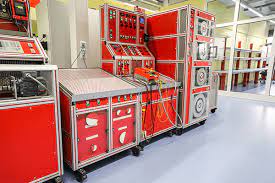We use and consume electricity in our daily lives. From powering our household appliances to facilitating industrial operations Frequenzumrichter Danfoss SEW Lenze Siemens reparieren lassen, inverters play a pivotal role in ensuring efficient energy usage. The technology behind inverters has continuously evolved, offering numerous benefits that have significantly impacted various sectors.
At its core, an inverter is an electronic device that converts direct current (DC) power into alternating current (AC) power. This conversion process enables the utilization of DC power sources such as batteries or solar panels to operate appliances that require AC power. Inverters have become an essential component in various applications, including residential, commercial, and industrial settings.
One of the key advantages of inverter technology is its ability to regulate the speed and output of motors. Inverter-driven motors allow for variable speed control, enhancing energy efficiency by adjusting the motor’s speed to match the required load. This feature is extensively utilized in HVAC (Heating, Ventilation, and Air Conditioning) systems, pumps, compressors, and other motor-driven equipment, resulting in reduced energy consumption and lower operating costs.
In the realm of renewable energy, inverters play a vital role in the integration of solar and wind power into the electrical grid. Solar panels generate DC power from sunlight, and wind turbines produce varying DC voltages from wind energy. Inverters are employed to convert this fluctuating DC power into stable AC power suitable for feeding into the grid or for local consumption, ensuring seamless integration and optimal utilization of renewable energy sources.



